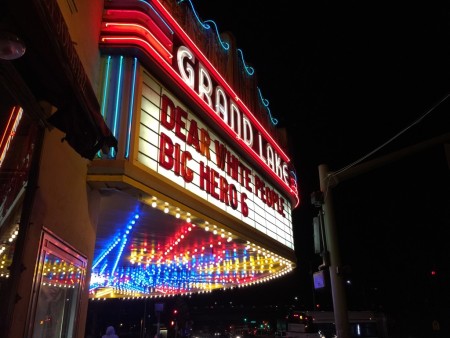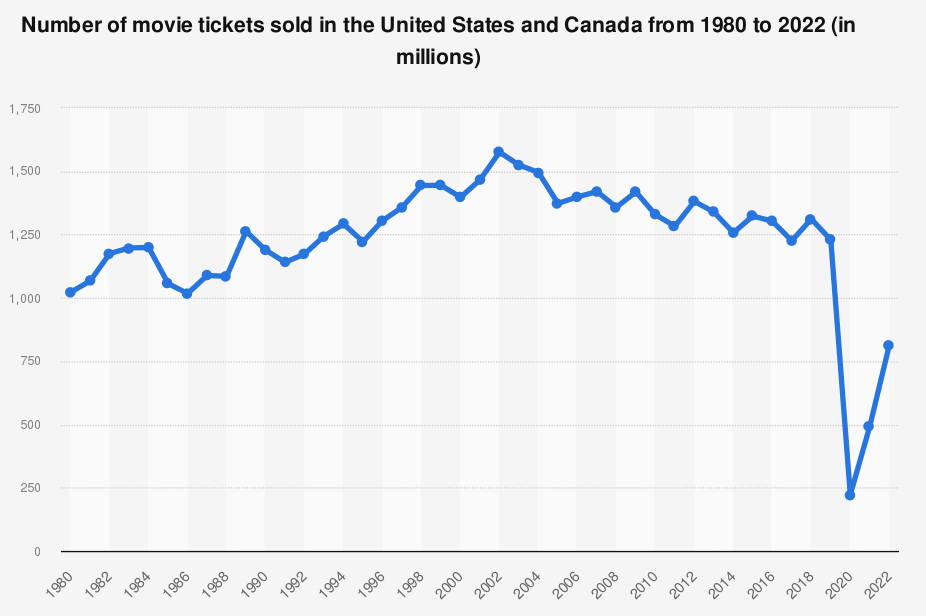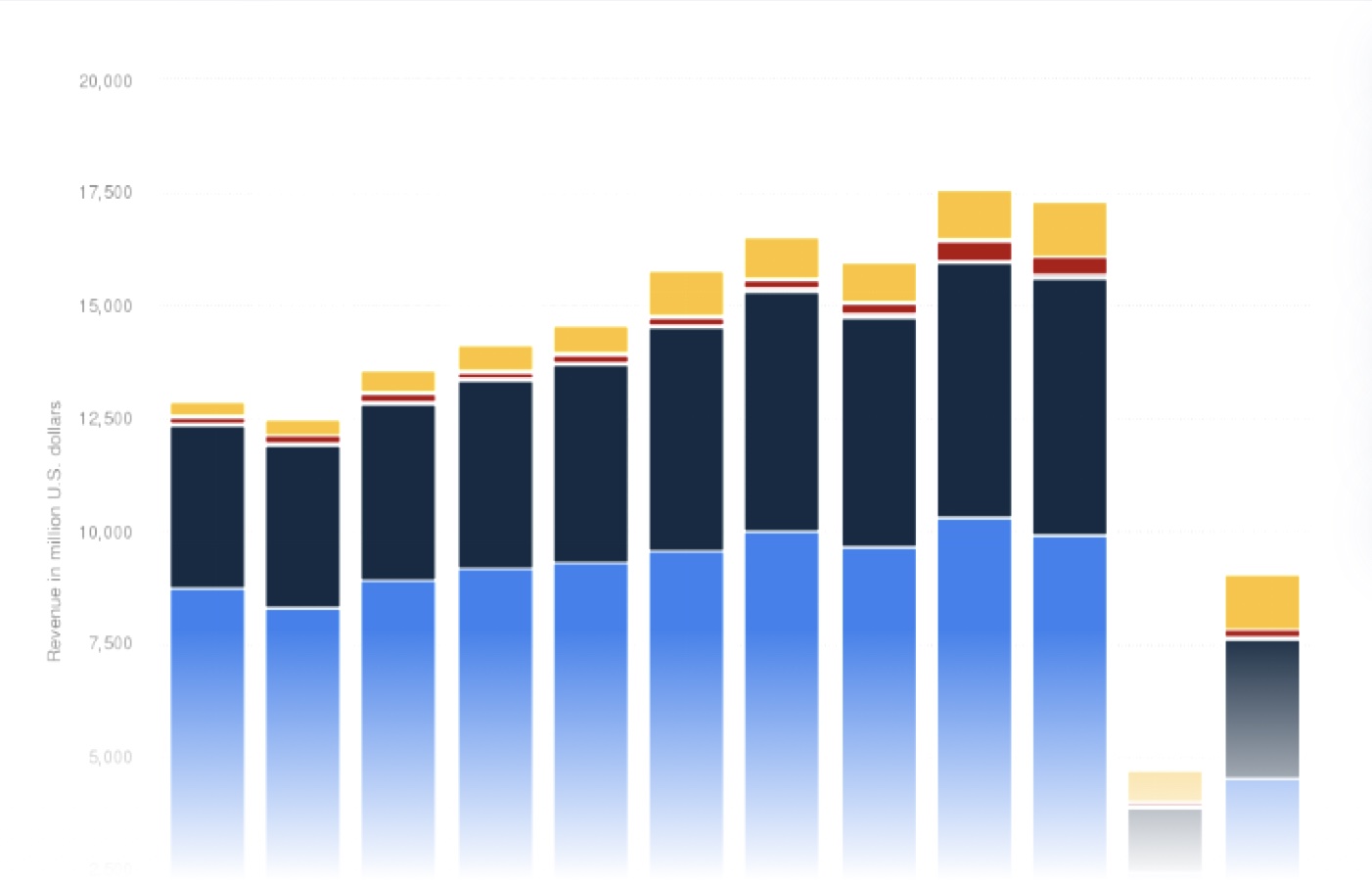 Gratuitous photo of champagne, which adds nothing to the article. But isn't it pretty?
Gratuitous photo of champagne, which adds nothing to the article. But isn't it pretty?
How to Be Happy: Two Choices
 Gratuitous photo of champagne, which adds nothing to the article. But isn't it pretty?
Gratuitous photo of champagne, which adds nothing to the article. But isn't it pretty?

 Gratuitous photo of champagne, which adds nothing to the article. But isn't it pretty?
Gratuitous photo of champagne, which adds nothing to the article. But isn't it pretty?

There's a reason that movie theaters are struggling. You drive across town and pay ten bucks to do – basically – what you do at home: watch a story on a screen. Except at home it's free and you're on your own schedule.
Oh, and you want something to munch on at the theater? Then reach again into your wallet, buddy. A humble box of popcorn evokes the hyper-inflation of the Weimar Republic, when buying a loaf of bread required wheelbarrows of cash.
The lights dim, and then…the advertisements roll. The ads roll on and on, providing a glimpse of what eternity feels like. (But we paid to get in, so why are we watching ads?)
Finally, as the numbness sets in, the elusive main feature appears. If it’s bad, you can’t change the channel. Oh no, you’re stuck with that boring stinker. It’s like sophomore Geometry class: We’re sorry – you’re gonna sit still and pay attention.
And much of what plays in movie theaters is pretty sophomoric. For the studios to gamble on producing a movie for 4,000 suburban multiplexes, it tends to be hopelessly broad, or a well-worn retread. There are – count ’em – 16 batman movies. Holy guacamole, Batman, 15 wasn’t enough?
Due to the factors above, movie theaters have been struggling for 20 years. Ticket sales have declined steadily since their high point in 2002. Recently they’ve rebounded from the pandemic collapse, though in mid-year 2022 they were still down 33% from the same period 2019.
 After a high point in 2002 – a big year for Lord of the Rings – ticket sales have dwindled as ticket prices have increased.
After a high point in 2002 – a big year for Lord of the Rings – ticket sales have dwindled as ticket prices have increased.
However, movie theater revenue has increased over the last ten years, inflated by a robust increase in ticket prices and the profit on those tubs of salty popcorn immersed in bright yellow food coloring. Even in 2021 – still down from the pandemic crash – theaters earned an impressive $9 billion in revenue; $4.5 billion from ticket sales, more than $3 billion from food and beverage sales.

Movie theater revenue, 2010-2021. The blue section represents ticket revenue; the black section is food and drink revenue.
Still, the healthy revenue figures don’t obscure the falling attendance. We all know the chief culprit behind lower ticket sales: home theaters. More accurately, the comfort of that beat-up couch in your living room.
At home, just a few clicks conjures a glittering galaxy: Netflix, Amazon Prime, Hulu, Roku, HBO, five gazillion channels. Have remote, will travel: any movie that’s ever won Best Picture, all 16 of the Batman flicks, 12 Star Wars films, and many of the 38 Godzilla movies (really, 38 Godzilla movies?). Even a vintage stream of 1989’s When Harry Met Sally, in which Meg Ryan’s fake orgasm illuminates the male-female imbroglio.Given the choices at home, who’s still going out? We’ve got burgers on the grill and cheap beers in the fridge. Hell, we can interrupt Bridesmaids to get dessert – for tonight, how about chocolate ice cream with chocolate sauce? Dude, you can’t beat it.
Clearly there’s danger ahead for movie theaters. Their very survival is threatened. The local multiplex is like a desperate action hero, bound in chains by the bad guy, dangling over the steepest cliff. We’re on the edge of our seats: Will she survive?
To understand the answer, I offer the perfect test case: the 2021 sci-fi movie Dune. The film's unusual debut reveals a timeless truth about the future of movies.
Dune has a legacy following based on Frank Herbert’s long-running book franchise. The original novel sold nearly 20 million copies, spawning a 1984 film and a 2000 television series. The story is a natural for the big screen: Sand worms! Dessert battles!
Released in October 2021 by Warner Bros., Dune appeared in 4,125 theaters across the US. For the first month of its release, the movie was also streamed on HBO. (Warner did this for all its 2021 film releases.)
In other words, you could have watched the blockbuster in the theater or at home.
So did people stay home, raiding the fridge while streaming Dune for the price of HBO ($14.99)? Or did they pay $10 a seat to watch in theaters, slurping down over-priced sodas?
Before you guess, remember that October 2021 was a brutal month. Covid was still raging, despite widespread vaccination. That September saw a parabolic upsurge in cases, and October began with about 90,000 people hospitalized in the US. Tragically, the daily death rate that month ranged from about 1,300 to 2,000.
So it’s reasonable to guess that everyone stayed home to watch the Dune premiere, right? Sitting in a theater packed shoulder-to-shoulder was dangerous that October. Random coughs in the next row must have been scarier than the nastiest sand worm.
Remarkably, people flocked to theaters – opening weekend hauled in a robust $41 million. The movie was a box office hit and went on to earn $401 million worldwide.
So there you have it: even with Dune available at home, people risked serious illness – even death – to enjoy it in theaters. All these years of home entertainment systems, surround sound, big screen TV’s – nope, forget it. People will still hire a sitter, hop in the minivan and tool out to the multiplex.
Why?
Movie theaters benefit from a timeless truth: we humans are social animals. Profoundly so. We want to leave the house – we need to leave the house. It’s so darn comfortable there, but it’s not enough.
We need to get the hell out, glimpse other faces, gossip, flirt, breath new air. The entire history of humanity is about getting out, of the tepee, the cabin, the castle, the manor, the split-level suburban pre-built. Home sweet home? God, please, get me out of here.
Perhaps most important: No one falls in love at home. Oh no, you’ve got to leave the comfort of hearth and home to do that. And the modern search for love favors the movie theater: the movie date is an enshrined courtship ritual. One that looks prepared to hold its own against the louche, home-based “Netflix and chill.”
The old-fashioned movie date offers a safe meeting ground and a first shared experience. How many relationships – even matrimony – have been sparked while sitting in the flickering light of Titanic, E.T. or (perish the thought) Godzilla, King of the Monsters.
(Released in 2019, Godzilla earned a stunning $48 million in its US debut, but was considered a box office failure due to its gargantuan production and marketing costs. Still, that’s a whole lot of butts in seats.)
So no, movie theaters aren’t going the way of 20th century relics like print newspapers, gas engines, and humans who look away from their phones. Despite their problems, these dimly-lit temples where humans gather to worship a glowing screen are surviving. Popcorn, anyone?
